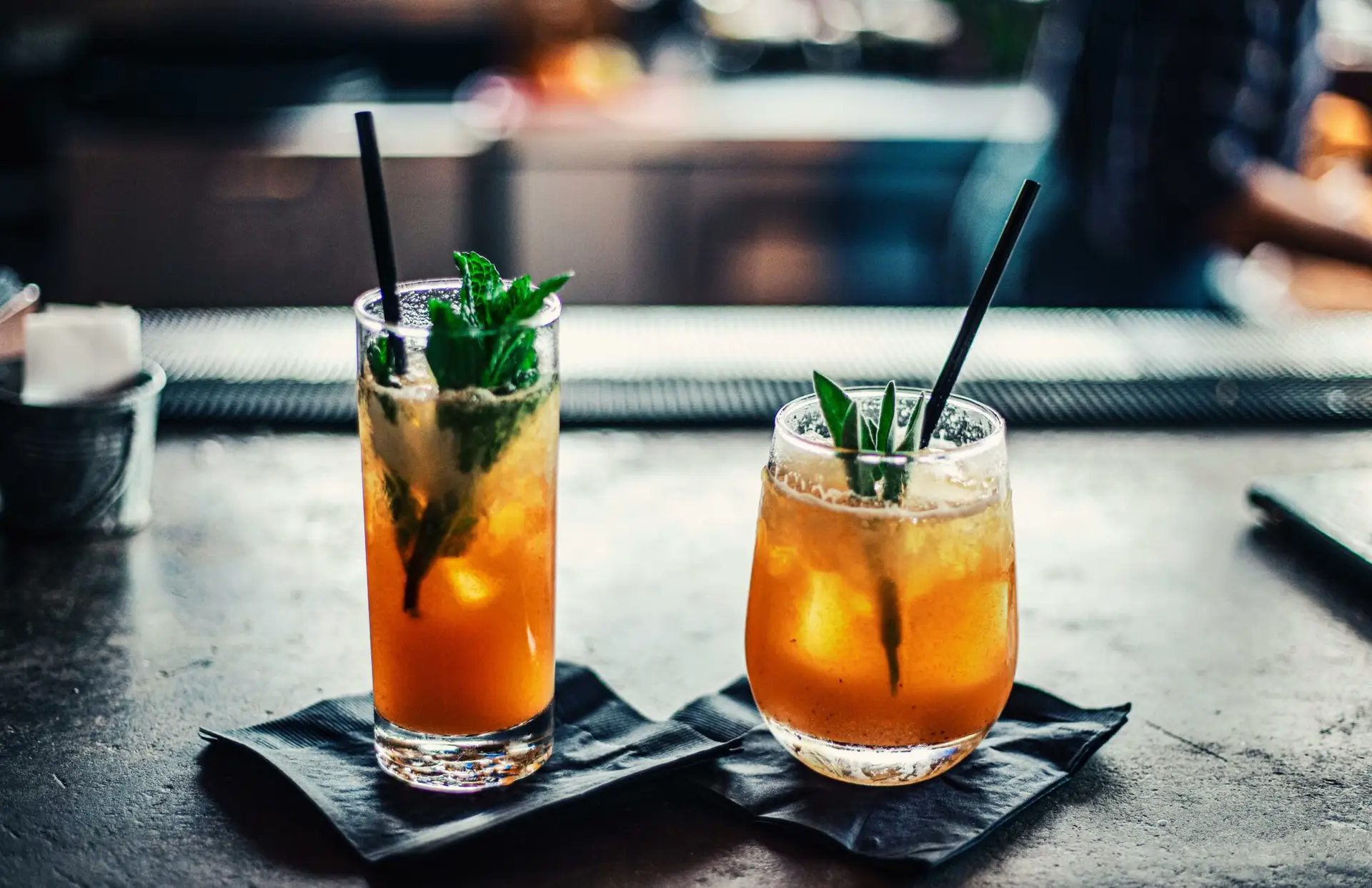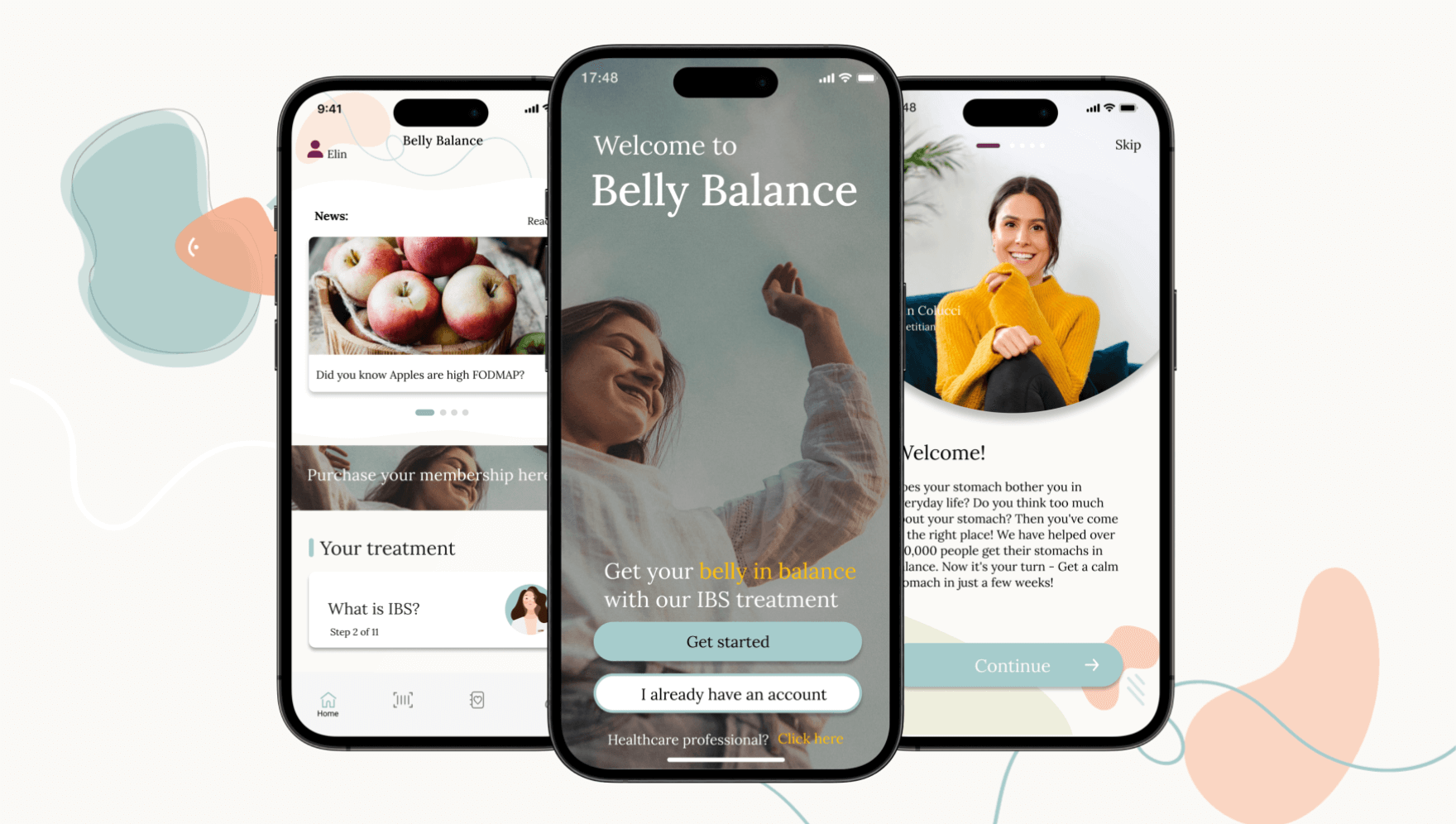
Alcohol and IBS
Summer is approaching, the wine box comes out, and it’s easy to consume more alcohol than usual. Most of us enjoy drinking alcohol now and then, and you don’t need to decline just because you’re following the FODMAP diet. It’s fine to have a glass of beer or wine, but since alcohol can irritate the stomach in several ways, it’s a good idea to limit your intake. Here’s a guide on alcohol and IBS to help you make smart choices that are gentle on your stomach.
Alcohol irritates the stomach
Alcohol does not often contain FODMAPs, but it is known to irritate the stomach in several ways. Some people experience diarrhoea from excessive alcohol intake, while those with constipation may find that a larger amount of alcohol allows them to have a proper bowel movement the next day. However, using alcohol as a remedy for constipation is not recommended, as there are other ways to alleviate it. Some individuals may already feel pain in their stomach after consuming alcohol, which is simply due to increased sensitivity, such as an irritated mucous membrane.
Alcohol and the FODMAP diet
Although alcohol itself does not contain FODMAPs, it is still considered a limited food during the elimination phase. It’s not wrong to abstain from alcohol completely during this period, but we suggest a maximum of one glass or serving per occasion (per dinner/evening) for those who still feel like having a drink. There are several alcoholic options that are low-FODMAP.
Alcohol and IBS – what should I avoid?
Alcohol can be consumed in many different forms. Some prefer a cold beer, while others enjoy a nice glass of red wine. Below, we will go through how different alcoholic beverages fit or don’t fit for those with IBS.
Wine and IBS
Red, white, and rosé wine are low-FODMAP and acceptable to drink one glass per occasion during the elimination phase. Sweet wines like sherry and port are high-FODMAP. Dry white wine contains a low amount of sugar and could be considered the safest option for those who are sensitive to fructose.
Champagne and IBS
Low-FODMAP. Some actually find that sparkling wine is easier on the stomach, but be cautious of the bubbles, which can cause gas.
Beer and IBS
Even though beer is made from wheat and barley, it is low-FODMAP because the fructans in the grains are converted into alcohol during the fermentation process. However, most types of beer still contain gluten, which isn’t an issue for those with IBS, but opt for gluten-free beer if you are gluten intolerant.
Spirits and IBS
For example, whiskey, gin, and vodka do not contain FODMAPs either. However, due to their high alcohol content, it’s important to consume them in small amounts.
Cider and IBS
Cider has not yet been analyzed, but it is usually made from apples or pears, so we can assume it is high-FODMAP. Even though the sugars are converted to alcohol during the fermentation process, there may be added sweetness in the form of juice, which is often apple or pear. However, a cider with elderflower flavor is okay to drink in smaller amounts.
The carbonation causes gas in the stomach.
Do you get gas in your stomach from carbonation? Yes, that’s exactly what happens. The carbonation continues to bubble off, first in the stomach, causing burping. Then gas is formed as the carbonation moves through the digestive system. The trick is to let carbonated beverages sit and “de-bubble” for a while before drinking. If you can pour it into a glass, that’s good; otherwise, you can shake the bottle and gently release the bubbles. How much you react to carbonation is individual, and of course, there are various levels of carbonation in drinks, so try to find what works for you.
Recommendations on alcohol and IBS
- A little and often. We often write down occasions on our lists, but what does that really mean? Is it once an hour? Not really; most people with sensitive stomachs can handle a small amount of alcohol without any problems, while too much at once can become uncomfortable. Everyone has their own personal limit and tolerance level. But it’s better to have a glass of wine now and then than seven glasses on a Saturday! During the elimination phase, it’s okay to have a glass of wine or beer, and afterward, you can experiment.
- Don’t drink on an empty stomach. Skipping dinner before a party or happy hour is not a good idea, especially for those with sensitive stomachs. Prepare your stomach for the evening’s alcohol intake by having a proper dinner.
- One water, one drink. Drinking water while consuming alcohol is smart, both to dilute the alcohol intake and to stay hydrated and avoid dehydration, headaches, etc. If it’s boring to just hold a glass of water, opt for sparkling water and let it fizz out for a bit. Flavor it with mint, lemon, or lime to make it a bit more festive!
- Watch the mixers. Juice and soda are commonly used in drinks. Some are okay, like cranberry juice and a small amount of orange or pineapple juice. However, it can be difficult to keep track of the ingredient lists, and there’s a risk that some fructose syrup might sneak into the drink. For those who have done the reintroduction and can handle fructose, it’s not an issue.
Keep track of your symptoms after alcohol consumption
In the app Belly Balance, there is a symptom diary, weekly menus, recipes, a barcode scanner, FODMAP lists, and much more to help you manage your IBS. Through the FODMAP dietary approach, you can learn more about which foods trigger symptoms and keep those that are safe to eat.
Sofia Antonsson
Reg. Dietitian, Belly Balance
Read more about

IBS - What is it?
Bloated , constipated or having a gassy stomach? IBS or Irritable Bowel Syndrome is a functional gastrointestinal disorder, meaning no physical issues can be found in the stomach or intestines; they just don’t function quite as they should.

How the app works
Download the app and become part of our community. We assist you in achieving a calm and happy stomach through treatment and tools available directly in the app.

About FODMAP
By learning which foods upset your stomach, you can make conscious choices and get quick symptom relief. With the low FODMAP diet, you receive structured assistance in understanding which foods your body tolerates better than others. No more guessing and pondering – you get the answer straight away!

